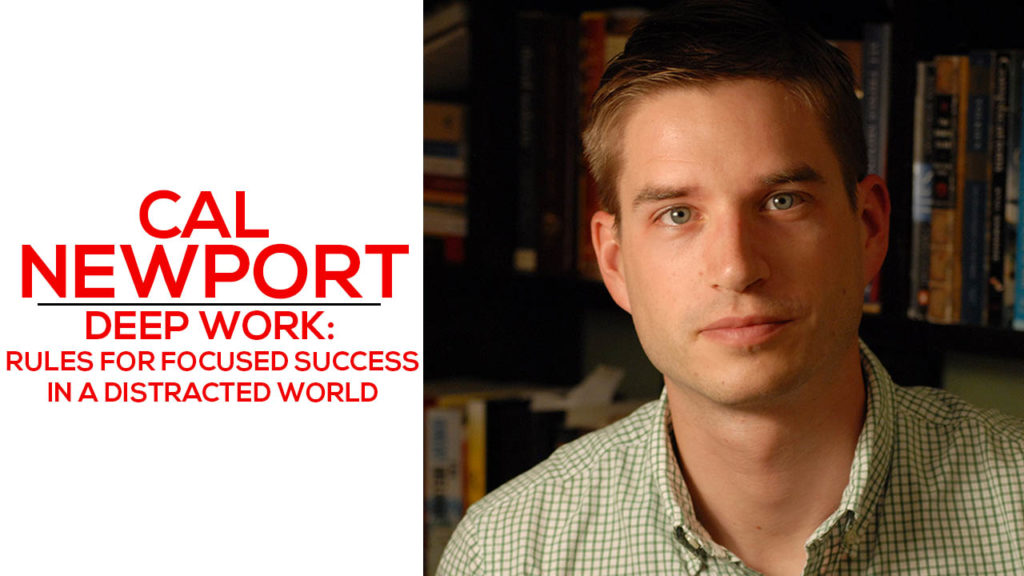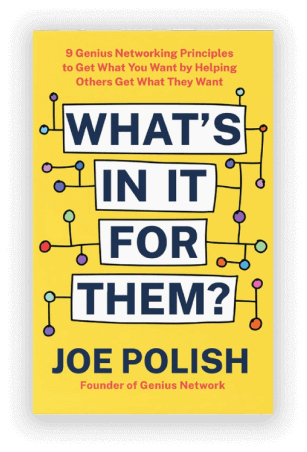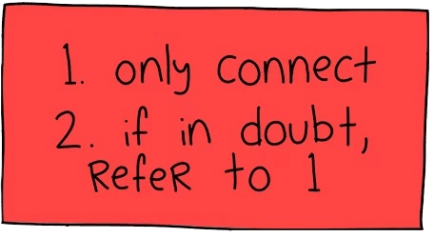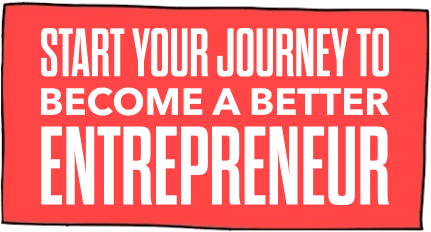
Deep Work: Rules For Focused Success In A Distracted World with Cal Newport and Joe Polish
[mashshare]
Episode Summary
Feeling distracted? Looking for success in the midst of the noise? Cal Newport examines why “follow your passion” is counterproductive advice, his definition of “deep work,” the role of social media in focus, and more.
Cal Newport is an Associate Professor of Computer Science at Georgetown University. He earned his Ph.D. from MIT in 2009. His most recent book, Deep Work, argues that focus is the new I.Q. in the knowledge economy, and that individuals who cultivate their ability to concentrate without distraction will thrive.
Here’s a glance at what you’ll learn from Cal in this episode:
- Why “follow your passion” is counterproductive, erroneous advice
- What career capital is and how to master your craft
- A mindset for creating more opportunities and cultivating more happiness
- The Autonomy Dilemma: What “control traps” are and how to avoid them
- Where courage comes from (and the right way to channel it)
- The most important quote Cal has ever come across
- Cal shares his definition of “Deep Work” and how to apply it
- Should you Quit Social Media? Cal discusses the pros, the cons and the truth
- One of the most effective focusing strategies Cal has ever discovered
- Mastering Deep Work for greater satisfaction, peace of mind and a deep life
- The difference between time management and “obligation management”
- How yoga, meditation and Deep Work is transforming Joe’s life
- The downside of “hustling” and busting your butt (Cal shares a saner, smarter approach)
- Keys to producing more value by focusing on a small number of things
- Cal reveals his weekly ritual that can give you a solid structure, more energy and ignite your creativity
- The Overstimulation/Overwhelm Cure: How you can experience more calm and freedom
WHAT'S IN IT FOR THEM?
Get the first chapter for FREE and a limited-time viewing of "Connected: The Joe Polish Story"
Show Notes
- Following your passion is counterproductive, it actually reduces the probability that someone ends up passionate about their work life.
- Most people do not have preexisting career passions.
- Career satisfaction is more complicated than just doing work on a topic you are passionate about.
- Passion and meaning is something that is cultivated over time.
- Develop valuable skills and leverage them to shape your career in a way that makes it a source of passion.
- Flip your mindset and consider what you are bringing to the job.
- One of the most important factors in career satisfaction is autonomy in your job.
- There are control traps on both sides of autonomy, you can’t make a bid for it before you have the career capital to back it up but you will also face a lot of social pressure once you do have it.
- Once you truly understand the factors in an important decision, courage and fear don’t really play a part.
- Force yourself to go through your career thinking without using the word passion.
- Passion as a term when applied to something can actually reduce it psychologically.
- Deep work is cognitively demanding work done over a sustained period of time. You take your mind and push it to its limit in order to create something of value.
- Focusing on something is energy intensive which is a hard sell for your body. Once you see results there is a satisfaction that makes it easier.
- Deep work is what moves the needle.
- Social media is designed and engineered to extract as much attention as possible from its users.
- Businesses and stockholders are the only ones who truly benefit from social media.
- Treat social media like a pro, keep it separate from your personal life.
- A simple step would be to just take the app off your phone.
- Your brain is what creates the strategies and value in your business so your attention and what you focus on is a very valuable resource. You have to avoid the lifestyle of distraction and be comfortable with being bored.
- Productive meditation is a great tool that you can use to occupy time that would otherwise be boring.
- Flow states and pushing your limits are distinct efforts.
- Concentration is a skill that you have to practice. Start with small amounts of time and build up from there.
- You have to couple time management with obligation management which is what you allow on your plate.
- Deep work, like yoga will give you the space to respond to life instead of just reacting.
- Deep work is simply satisfying and meaningful.
- Business is not intrinsically valuable, take small things off your plate and you will net more value.
- Intense focus in a short period of time is more effective than spreading out the effort over an entire day.
- It takes time and work to rewire people’s expectations and the way we work.





